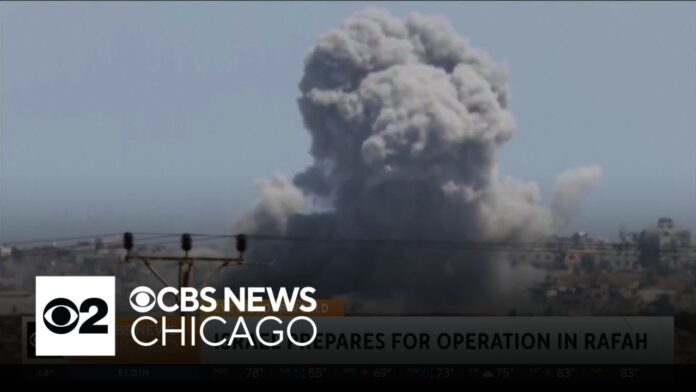With Israel amassing troops at the Rafah border, U.S. Officials express doubts about the effectiveness of a full-scale military operation against Hamas in Gaza
As tensions continue to escalate in the Gaza Strip, the Biden administration has confirmed that Israel has deployed a significant number of troops near Rafah, poised for a potential full-scale incursion. This development comes amidst President Joe Biden’s stark warnings against such an operation, emphasizing the U.S.’s stance against escalating the conflict further.
The preparation for an incursion into Rafah has raised concerns at the highest levels of the U.S. government. Senior administration officials have indicated that Israel’s current military posturing could lead to significant humanitarian and strategic challenges, particularly without adequate preparations for the potential displacement of over one million Gazans.
The U.S. has repeatedly cautioned Israel against pursuing a ground offensive into the densely populated areas of Gaza, arguing that such actions would likely be counterproductive. President Biden has explicitly stated that the U.S. would withhold additional arms shipments specifically intended for such operations, highlighting a growing rift in U.S.-Israeli relations regarding the conflict’s management.
“Israel’s approach to this conflict raises profound questions about the potential outcomes and the broader objectives they wish to achieve,” stated Jake Sullivan, National Security Adviser. He and other U.S. officials have underscored the improbability of achieving a total military victory over Hamas, suggesting instead that a political solution is necessary.
On the diplomatic front, Secretary of State Antony Blinken and other U.S. officials have been vocal about their concerns, pointing to the potential long-term consequences of a full-scale invasion. These include inheriting a protracted insurgency or leaving behind a power vacuum that could ultimately benefit Hamas.
Despite these concerns, the U.S. acknowledges that Israel has succeeded in degrading Hamas’s capabilities significantly. This assessment aligns with Israel’s stated objectives of reducing the threat posed by the militant group, although the presence of senior Hamas leadership in Rafah remains uncertain.
The Biden administration continues to advocate for a ceasefire and the initiation of talks aimed at addressing the governance of Gaza post-conflict. However, U.S. officials have noted a lack of proactive engagement from Israel regarding post-war plans, which has been a source of frustration for those pushing for a comprehensive approach to the region’s long-term stability.
Analysis:
The potential Israeli incursion into Rafah represents a critical juncture for U.S.-Israel relations and highlights the challenges of military engagement in urban areas with high civilian populations. Politically, the situation tests the limits of U.S. influence over its ally in matters of military strategy and humanitarian concerns.
Economically, the ongoing conflict threatens stability in the region, which can have broader implications for international markets, especially if the conflict disrupts key trade routes or oil supplies. Sociologically, the impact on Gaza’s civilian population could have lasting effects, influencing public opinion both regionally and globally against Israel’s tactics.
From a security perspective, the U.S. remains concerned about the aftermath of a possible incursion, emphasizing the need for a sustainable political solution rather than a temporary military one. This approach aligns with broader geopolitical strategies aimed at ensuring peace and stability in the Middle East.
